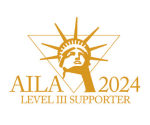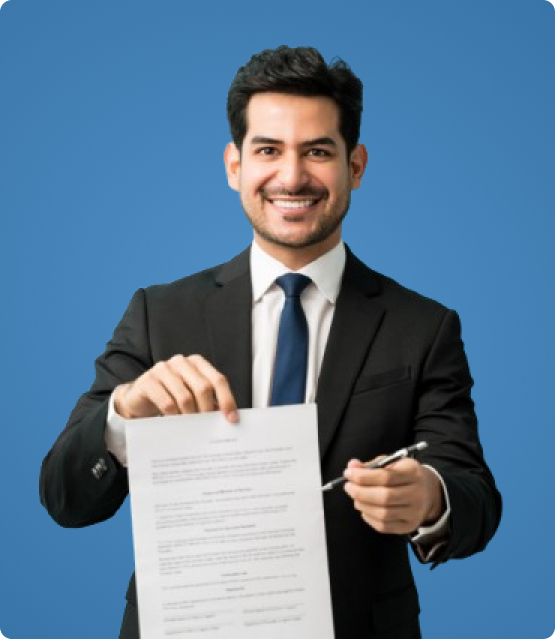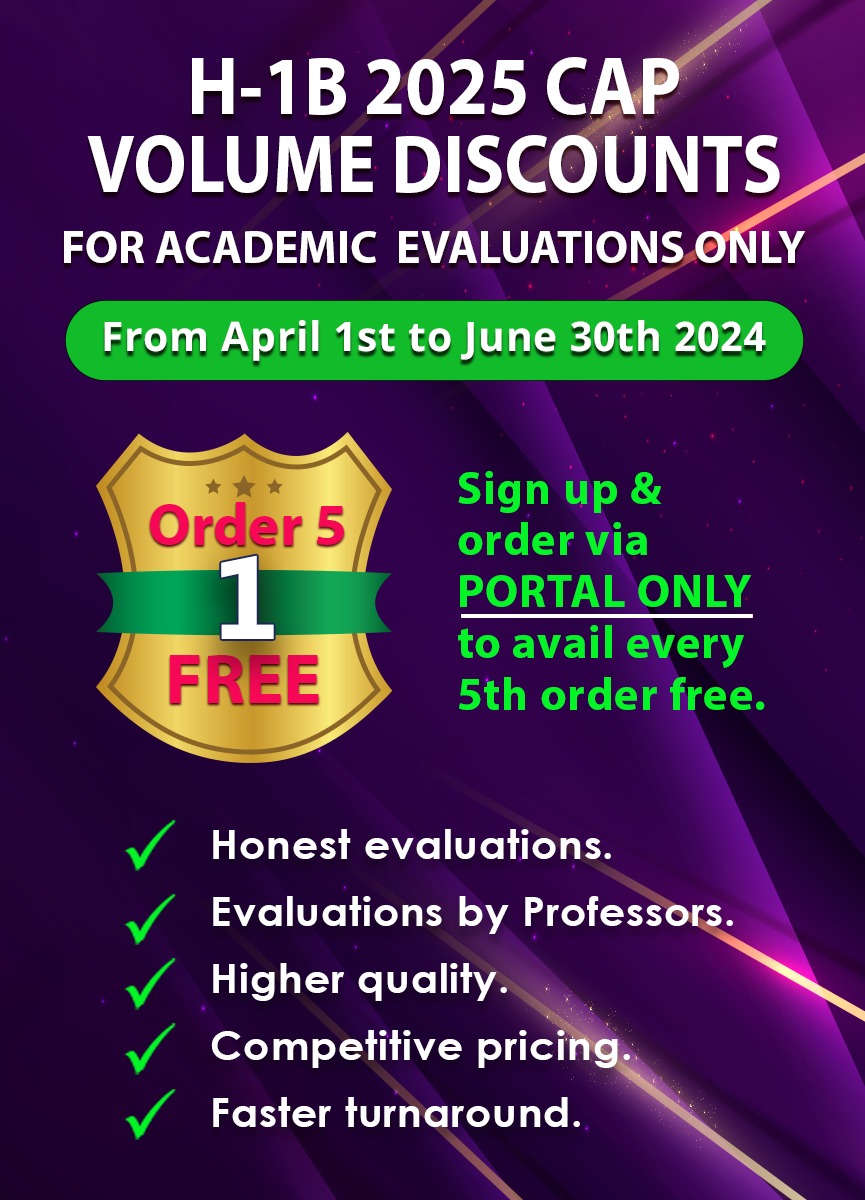It's service
 Evaluations
Evaluations
Work Experience Evaluation
The work experience evaluation is provided for immigration purposes predominantly for those applying for H-1B visas. The report evaluates both an individual’s professional work history (using the USCIS “three-for-one rule”) along with his/her academic qualifications in order to achieve a Bachelor’s degree equivalency.
This rule states that three years of work experience can be substituted for one year of academic study in order to equate the work experience to a U.S. Bachelor’s degree. (This equivalency is used for USCIS and DOL purposes only; the applicant cannot use the reports for admission into university programs based on work experience.)
According to the USCIS, to be qualified to perform services in a specialty occupation (H-1B), the beneficiary must meet one of the following criteria:
- Hold a U.S. bachelor’s or higher degree required by the specialty occupation from an accredited college or university; or
- Hold a foreign degree determined to be equivalent to a U.S. bachelor’s or higher degree required by the specialty occupation from an accredited college or university; or
- Hold an unrestricted state license, registration or certification which authorizes him or her to fully practice the specialty occupation and be immediately engaged in that specialty in the state of intended employment; or
- Have education, specialized training, and/or progressively responsible experience that is equivalent to completion of a U.S. bachelor’s or higher degree in the specialty occupation and have recognition of expertise in the specialty through progressively responsible positions directly related to the specialty.
The USCIS interprets the term “degree” to mean not just any degree, but a degree in a field of study that is related to the position. In the absence of a U.S. or foreign equivalent degree in a specific specialty, the beneficiary may alternatively provide proof of specialized training and/or work experience which is evaluated to a U.S. baccalaureate (Bachelor’s) or higher in the specialty of the work experience. For the purposes of determining equivalency to a baccalaureate degree in the specialty, three years of specialized training and/or work experience must be demonstrated for each year of college level training the beneficiary lacks. The USCIS issues an RFE (Request for additional Evidence) in the absence of such an evaluation seeking to prove the beneficiary’s qualification for the proffered position.
To determine the U.S equivalency, our evaluators follow the USCIS “3:1” rule for a Bachelor degree and “Bachelors+5 years” for a Master degree equivalency. Carnegie Evaluations’ experts are industry experienced tenured Professors, affiliated with reputed U.S accredited Universities. Our professors are recognized authorities in their respective fields of specialization and are authorized to grant “college-level credits”/ “life experience credits” for work experience and/or training gained in the specialty. Our evaluators assess the beneficiary’s work experience, its progressive nature, and recognize the expertise of the beneficiary in the specialty. For work experience evaluations, we require experience verification letters from current and past employers detailing the duration of employment, position(s) held, and job duties handled, in addition to academic documents.
Document Checklist
- Experience letters from current and previous employers, specifying periods of employment, job titles held, and job duties performed.
- Detailed employer-based resume specifying job titles held, names of employers, duration of employment(month/year), and job duties performed.




 Request an Evaluation.
Request an Evaluation. Login
Login







